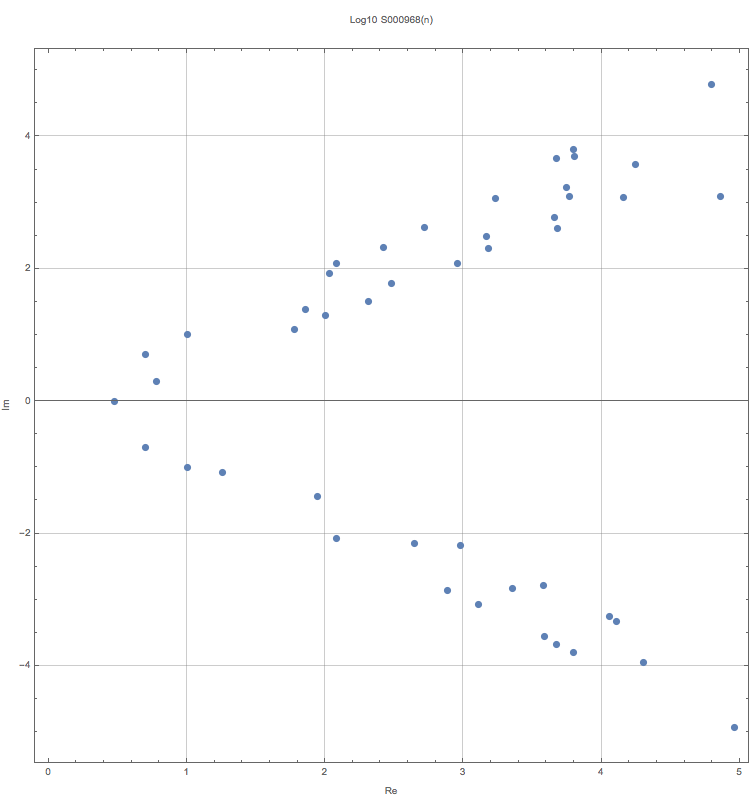Gaussian integers z = x + i*y, with x > 0 and |y| <= x, whose sum of divisors is z * r, where r is also a Gaussian integer.
1, 0, 3, -1, 5, -5, 5, 5, 6, 2, 10, -10, 10, 10, 18, -12, 60, 12, 72, 24, 88, -28, 100, 20, 108, 84, 120, -120, 120, 120, 204, 32, 263, 209, 300, 60, 440, -140, 526, 418, 768, -720, 912, 120, 950, -150, 1280, -1200, 1470, 310, 1520, 200, 1704, 1152, 2256, -672
1
This is the generalization of multiply perfect numbers (A007691) to the Guassian integers. By displaying the numbers in this order (|y| <= x), no numbers are missed. In the plot, we show the logarithm of the real part versus the sign of the imaginary part times the logarithm of the absolute value of the imaginary part. See S000969 for the complex numbers r.
T. D. Noe, Plot of 47 Gaussian integers
T. D. Noe, Table of 47 Gaussian integers
Eric W. Weisstein, Mathworld: Gaussian Integer
(Mma) lst = {}; Do[z = n + k*I; s = DivisorSigma[1, z, GaussianIntegers -> True]; If[Mod[s, z] == 0, AppendTo[lst, z]; Print[{z, s, s/z}]], {n, 3000}, {k, -n, n}]; Flatten[Transpose[{Re[lst], Im[lst]}]]
nonn,sign,hard,nice
T. D. Noe, Feb 23 2017
